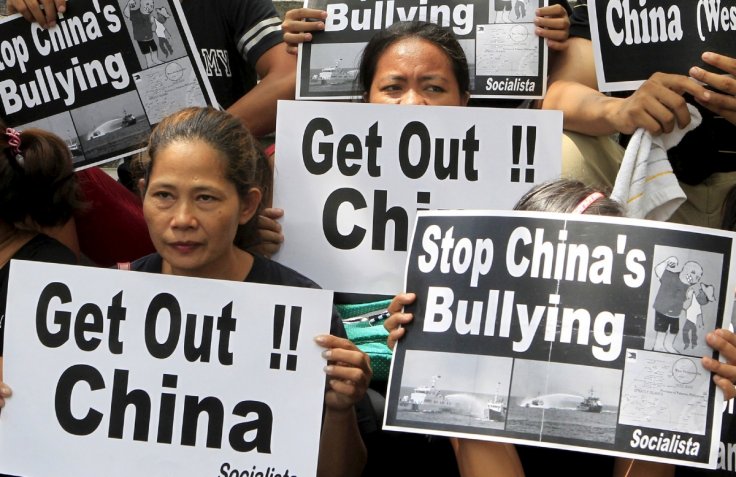
Vietnam has warned China not to conduct any drilling activities in the disputed South China Sea waters and asked Beijing to withdraw a drilling rig from an area it claims as its own.
Vietnam has objected to China moving its Haiyang Shiyou oil rig to an area of the waters where the two countries' continental shelves overlap, according to the AFP.
"Vietnam demands that China not conduct any drilling activities and withdraw Hai Duong 981 oil rig from this area," Foreign Ministry spokesman Le Hai Binh said in a statement posted on the ministry's website.
"Vietnam reserves all its legal rights and interests in the area in accordance with international law," he added.
In 2014, China set up a drilling rig in waters near the Paracel Islands, angering Vietnam. More than 20 people were killed in protests in Vietnam after China's rig move. China withdrew the rig after conducting drilling for two months.
In 2015 satellite images showed Beijing was building an airstrip on land reclaimed around the Spratlys.
Festering territorial dispute
At the core of the South China Sea conflict is the overlapping claims of sovereignty over two island chains -- Paracels and Spratlys -- and waters around them. China, Taiwan, Malaysia, the Philippines, Vietnam and Brunei have made claims to a clutch of shoals, rocky outcrops, atolls and sandbanks in the sprawling South China sea.
In 2012, China and the Philippines faced off agaist each other in a tense maritime stand-off over Scarborough Shoal, which lies 100 km from the cost of Philippines and 500 km away from the cost of China's southern Hainan province.
China's latest move in the South China Sea came even as Vietnam's ruling Communist Party was holding a gathering of more than 1,500 delegates in capital Hanoi.
History of conflict
China lays claim to both the island chains stating that these were integral part of the empire from ages. In 1947 China formalised the claims by issuing a map showing the islands in its territory. But Vietnam has contested China's claims saying its rule over Paracels and Spratlys dates back to the 17th century.
China scored decisive military victories over Vietnam iin recent decades in its quest to cement claims over the island chains. In 1974, more than 70 Vietnamese soldiers died in China's military offensive that seized control of Paracels. In 1988 Vietnam lost Spratlys to China in another bloody military conflict.
The mostly uninhabited islands are of crucial strategic importance. The two major island chains are thought to harbour natural resources around them. China hopes the oil and natural gas reserves in the region could ensure its energy security.









